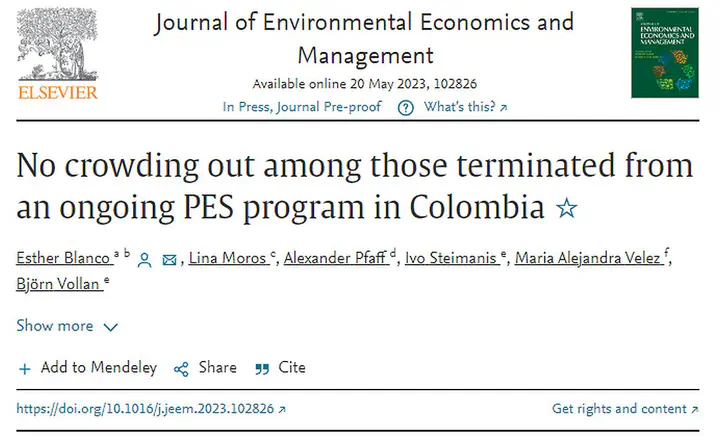No crowding out among those terminated from an ongoing PES program in Colombia

Abstract
This paper presents novel evidence of no crowding out, of either motivations or donations, among those terminated from an ongoing program of payments for ecosystem services (PES) in Colombia. PES programs have risen in number. However, claims about perverse impacts after programs end could inhibit their growth. PES end for different reasons (planned duration, budget reduction, issues in implementation) and in different ways (some participants or all). An expressed concern for PES is that receiving payments lowers conservation, after PES end, if participants’ intrinsic motivations for conservation are ‘crowded out’ by financial incentives. We test for crowding out by an ongoing program in which some but not all contracts were terminated. We see no evidence of crowding out, since neither the motivations nor the donations for the terminated farmers are significantly different than for non-PES land owners (and this is robust to matching on levels of assets, residence on farm past donation behavior, main economic activity, and participation in collective activities). Our results add evidence from an actual PES to literature questioning the relevance, importance and even sign of crowding effects.